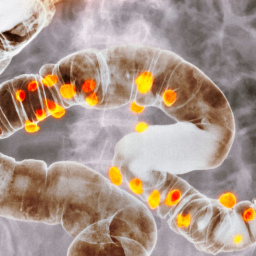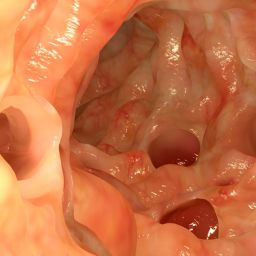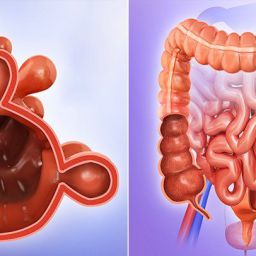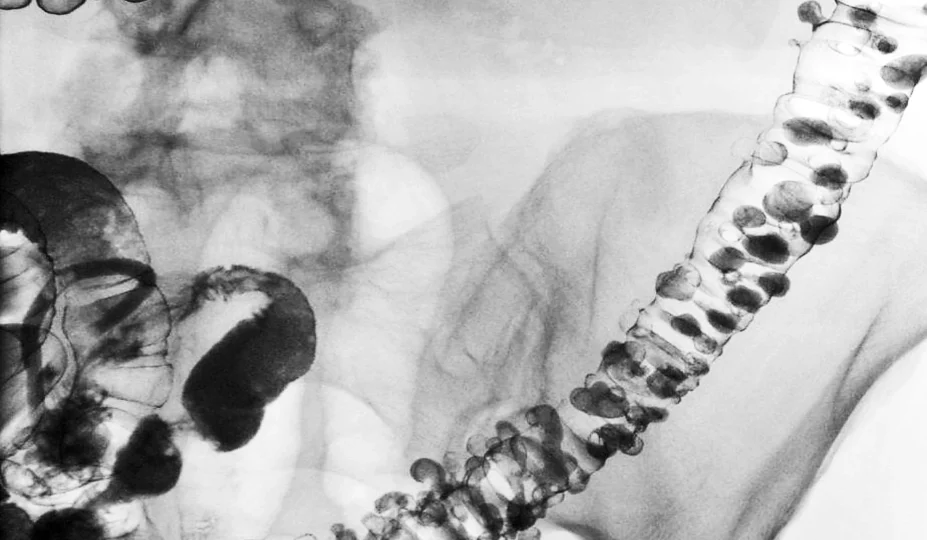
Diverticular Disease
Diverticulosis refers to the formation of diverticula—small, bulging pouches—in the colon. While the exact cause of diverticulosis remains unclear, it is believed that the pressure in the colon wall, combined with low fiber intake, contributes to the development of these pouches. Diverticulitis occurs when one or more of these pouches becomes inflamed or infected, causing symptoms like abdominal pain, fever, and changes in bowel movements.
Risk Factors for Diverticular Disease
Before diving into the foods that can increase the risk of diverticular disease, it is important to understand the general risk factors that contribute to the condition. These include:
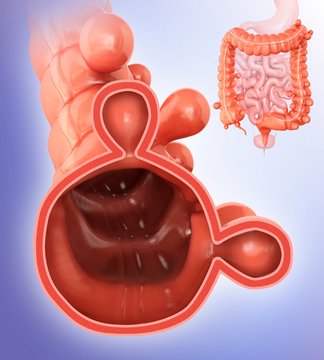
- Age: The risk increases with age, especially in individuals over 40.
- Low Fiber Diet: A diet low in fiber and high in processed foods is a significant risk factor.
- Sedentary Lifestyle: Lack of physical activity can contribute to poor bowel function.
- Obesity: Excess weight, particularly abdominal fat, is linked to an increased risk.
- Genetics: Family history may play a role in the development of diverticulosis.
How Diet Influences Diverticular Disease
Dietary habits significantly influence colon health. A diet low in fiber, high in fats, refined carbohydrates, and certain processed foods can increase the risk of diverticular disease. Conversely, a diet rich in fiber from whole grains, fruits, vegetables, and legumes promotes better colon health by facilitating regular bowel movements and reducing pressure on the colon wall.
Foods That Increase the Risk of Diverticular Disease
The following foods are believed to contribute to the development and exacerbation of diverticular disease:
1. Low-Fiber Foods
A diet lacking sufficient fiber is the primary dietary risk factor for diverticular disease. Low-fiber foods, especially refined grains and processed foods, are often poorly digested and can increase the pressure within the colon. This increased pressure can lead to the formation of diverticula, as the walls of the colon weaken and bulge under strain.
- Refined Grains: Foods such as white bread, white rice, and pasta made from refined flour lack fiber, which can contribute to constipation and irregular bowel movements.
- Processed Snacks: Many processed snacks, including cookies, chips, and pastries, are made from refined flours and added sugars, which are low in fiber and can slow down digestion.
Fiber plays a crucial role in absorbing water and creating bulk in the stool, making bowel movements easier to pass. Without sufficient fiber, the colon is under constant strain, leading to increased pressure in the colon.
2. Red Meat and Processed Meats
Red meat, particularly fatty cuts, and processed meats have been linked to an increased risk of various gastrointestinal conditions, including diverticular disease. These meats can contribute to inflammation in the digestive system and may alter the gut microbiome, which can lead to the development of diverticular disease.
- Red Meat: Beef, pork, and lamb are high in saturated fats, which may cause inflammation in the digestive tract and disrupt normal bowel function. Additionally, excessive consumption of red meat is associated with a higher risk of colorectal cancer, which can compound the risks of diverticulitis.
- Processed Meats: Meats such as bacon, sausages, hot dogs, and deli meats contain preservatives and chemicals that can irritate the gastrointestinal system and increase the risk of diverticular disease.
The high fat content in these meats can also slow down digestion and promote constipation, putting additional pressure on the colon.
3. Low-Quality Fats and Fried Foods
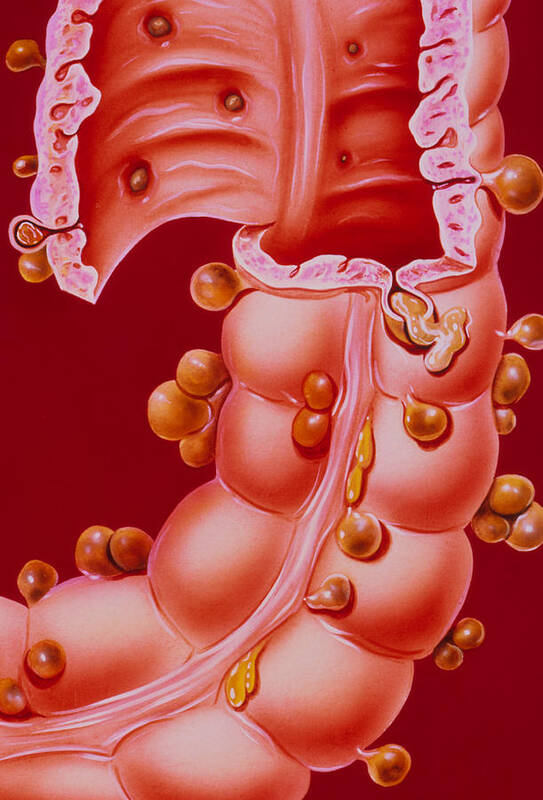
Consuming low-quality fats, such as trans fats and saturated fats, may increase the risk of diverticular disease by promoting inflammation and disrupting the digestive system. Fried foods, in particular, are difficult for the body to digest, and they contribute to excess weight, which is a risk factor for diverticular disease.
- Trans Fats: Found in many processed foods like margarine, packaged baked goods, and fast food, trans fats contribute to systemic inflammation.
- Saturated Fats: Foods high in saturated fats, such as full-fat dairy, fatty meats, and processed foods, can raise the levels of cholesterol in the body, leading to inflammation in the colon.
Fried foods, which are high in unhealthy fats, can exacerbate symptoms in people with existing diverticular disease by irritating the gastrointestinal tract and slowing digestion.
4. Refined Sugars and Artificial Sweeteners
Refined sugars and artificial sweeteners can increase the risk of diverticular disease by disrupting the balance of the gut microbiome and promoting inflammation in the digestive system. These foods can also contribute to obesity, which is a major risk factor for diverticulosis.
- Refined Sugars: Foods with high amounts of refined sugar, such as sugary cereals, sodas, candies, and baked goods, can lead to gut dysbiosis (an imbalance in gut bacteria), which may contribute to the development of diverticulitis.
- Artificial Sweeteners: Artificial sweeteners, such as aspartame, sorbitol, and sucralose, may cause gastrointestinal discomfort, bloating, and irritation, particularly in individuals with digestive issues like diverticulitis.
Excessive consumption of sugary foods can also lead to obesity, which increases the risk of diverticular disease.
5. Dairy Products (for Some Individuals)
For some individuals, dairy products can contribute to digestive discomfort and exacerbate the symptoms of diverticular disease. Lactose intolerance is common, and consuming dairy may lead to bloating, gas, and diarrhea in some people. The high-fat content in full-fat dairy products can also slow digestion, increasing the risk of constipation.
- Milk and Cheese: High-fat dairy products can irritate the colon and increase the risk of constipation, putting more strain on the colon and potentially leading to the formation of diverticula.
It’s important to note that not all individuals with diverticular disease will be affected by dairy. However, those with lactose intolerance should avoid milk, cheese, and other dairy products containing lactose.
6. Processed and Fast Foods
Fast foods and heavily processed foods are high in fats, salt, and artificial additives, all of which can disrupt gut function and increase inflammation. Additionally, these foods often lack the necessary fiber to support healthy digestion.
- Fast Food: Burgers, fried chicken, and pizza are often high in fats and low in fiber, making them difficult for the digestive system to process and leading to constipation and increased pressure on the colon.
- Processed Snacks: Foods like chips, snack cakes, and other packaged snacks are often high in sodium and preservatives, which can exacerbate symptoms of diverticular disease.
Regular consumption of fast foods and processed snacks can contribute to obesity, which is another risk factor for diverticular disease.
7. Alcohol
Excessive alcohol consumption can increase the risk of diverticular disease by irritating the digestive system, promoting inflammation, and leading to dehydration, which can worsen constipation. Alcohol can also alter the balance of gut bacteria, contributing to digestive issues.
- Beer, Wine, and Spirits: Drinking excessive amounts of alcohol can disrupt normal bowel function and exacerbate symptoms in individuals with diverticulosis or diverticulitis.
Moderate alcohol consumption, or abstaining from alcohol entirely, is recommended for people at risk of diverticular disease.
While there is no single food responsible for causing diverticular disease, a poor diet low in fiber, high in processed foods, unhealthy fats, and artificial additives can significantly increase the risk. By avoiding foods such as refined grains, red meats, processed snacks, and alcohol, individuals can reduce their risk of developing diverticular disease and improve their overall digestive health.
Incorporating a diet rich in high-fiber foods, such as whole grains, fruits, vegetables, and legumes, can help support colon health and prevent the development of diverticulosis. Additionally, maintaining a healthy weight, staying physically active, and drinking plenty of water are important lifestyle choices to reduce the risk of diverticular disease.

